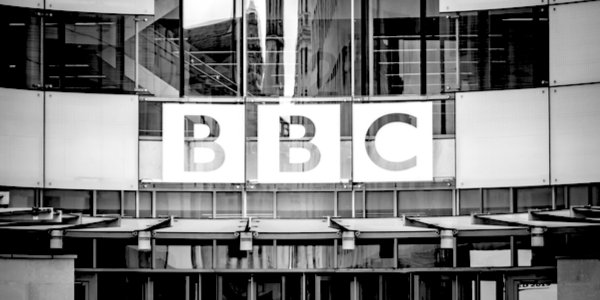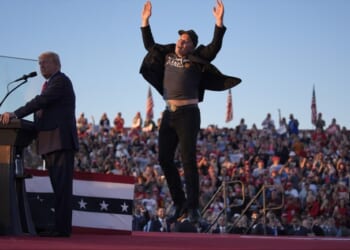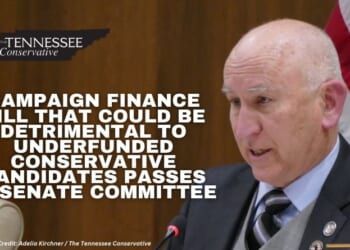WATCH any political interview conducted by mainstream media personnel and you may notice a familiar pattern unfold: most, if not all, of the interview consists of the journalist following a set script. Thus, the interaction follows a predictable path which is tightly controlled by the media representative.
As politicians of every stripe accept the terms of these encounters, the public may come to believe that, cast in an inquisitorial role, the corporate media truly does represent honesty and integrity. Do not its members interrogate the rich and powerful? Okay, so the interrogation of a Tory minister will contrast to the invariable fawning over Labour counterparts, but that’s all part of the wider spectacle.
Clearly, scripts are conceived to achieve set aims, providing the outcome desired by the media. When it’s Tories or Republicans on the rack, the aim more often than not is to extract contrition and provoke embarrassment. Recall Jeremy Paxman’s grilling of Michael Howard MP on BBC Newsnight. Now, try to imagine Sir Keir Starmer or Angela Rayner under such incessant media scrutiny.
However, what happens when a media inquisitor veers off script? It doesn’t happen very often, hardly ever in fact. Firmly wedded to their ‘talking points’, when forced off script even momentarily, modern day journalists soon unravel. Lines get fluffed. They can, and do, easily become ruffled. Witness that infamous Elon Musk interview which left the BBC’s James Clayton, bereft of his script, floundering in ever deeper water. Media training had seemingly not prepared him for such a crisis.
With the exception of the hapless Clayton, such moments are rarely captured, or if they are captured, they will quickly and effortlessly fall off the radar. This is precisely what happened when the BBC paid a visit to a US media personality called Stew Peters in May 2023.
Peters had recently produced an indie documentary entitled Died Suddenly. The film reports on multiple cases whereby individuals had reportedly died following Covid-19 vaccination. According to ‘fact-checkers’, however, the film’s claims are either misleading or downright false: Covid-19 vaccines are in fact safe and effective. Notwithstanding, over 70 percent of IMDb user ratings for the documentary have it at eight out of ten or higher.
Hence the BBC visit, explained by the BBC in its own inimitable way. Having played a prominent role in promoting Covid vaccines while haranguing sceptics, the British state broadcaster now had its sights firmly set on the producers of Died Suddenly. Thus, Peters duly came under fire from not just one but two BBC journalists, a double-pronged attack. The script was predictable enough: Peters, they said, had deliberately misled his audience and was pushing dangerous misinformation. They asked if he would he like to apologise on both his own behalf and that of his fellow film-makers?
Several minutes into the interview and despite a spirited defence of the film’s contents and its assertions, Peters was on the rack, having to constantly fend off, amongst other things, repeated demands to disavow his own work. Then, it got interesting, very interesting. The script was about to be flipped upside down, albeit briefly. The hunters, one of them especially, were about to become the hunted.
The question directed at Mike Wendling, a BBC journalist who claims to have co-founded the organisation’s ‘disinformation unit’, was simple enough:
‘Are you vaccinated?’
However, rather than a resounding reply along the lines of ‘yes, of course I am vaccinated’, Wendling seemed to be playing for time when retorting:
‘Do you want me to answer that?’
‘Well, I’m asking it because I want an answer,’ Peters replied firmly. Back to Wendling:
‘Okay, no, if we could just go back to…’ (italics mine)
As one of the BBC’s chief witch-hunters of vaccine sceptics, Wendling’s coyness was nothing if not puzzling. After all, alongside his BBC colleagues, he had long since been promoting Covid-19 vaccines, even zealously so. Getting vaccinated, according to Wendling, was an act of supreme heroism; those who refused the shot, meanwhile, were selfish ‘conspiracy theorists’ to be shunned, isolated and even worse. Hesitation and prevarication were therefore not quite the reactions that might have been expected in response to such a simple question.
‘Yeah, but are you vaccinated?’
‘Erm, I… you know,’ said a faltering BBC disinformation agent. ‘You can make your own assumptions.’ On the edge, seemingly, of serious malfunction, Wendling attempted once more to change the topic.
Determined to drive home this unexpected advantage, Peters stuck to his guns:
‘Are you (vaccinated)?’ persisted Peters, the glint in his eye strongly suggesting that he had indeed by now made his own assumptions.
‘Listen, I’m not going to answer that.’
An indignant Peters interjected, ‘But wait, this has been your business for the last year and a half. My vaccine status has been your business.’
The tables well and truly turned, the disinformation duo could only squirm. Would the target of the BBC witch-hunt now go in for the kill? Perhaps, it was simply the case that he had decided to spare his tormentors any more blushes, but whatever the reason, Peters disappointingly allowed himself to be shepherded back to the script and back onto the defensive.
What should we make of this extraordinary encounter? What could possibly explain the reticence of this most vocal of vaccine advocates? Thrice, Wendling had been asked to confirm if he had taken the very same vaccine he had been incessantly promoting, and three times he had refused to give an unequivocal answer. The disinformation guru had instead run to his BBC script for cover. Indeed, Wendling and his colleague continued their interrogation as if nothing had happened. Oh, but it had, and the full interview footage (at 42:20 minutes in) is still out there for all to see.
As for Stew Peters, he never received a reply to that most simple of questions. Or perhaps he had…










